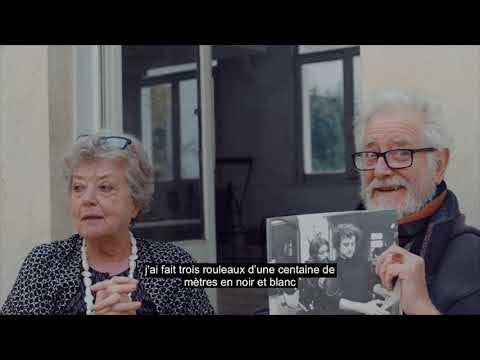The working title of the film Injun Fender (1972), Wild Orange, was dropped because of its proximity to Stanley Kubrick’s Clockwork Orange, which premiered just before production started, in New York City, in mid-December 1971. It is often referred to as Cordier’s first feature film, but some less distinguished predecessors have recently popped up — low-budget English-language versions of softcore Swedish “art” films made for Cannon Productions. Cordier never mentioned these in my many sessions with him during the last years of his life (he died of COVID-19 complications in the early days of the pandemic). Presumably, he worked on these, both as director and actor (usually listed as “French lover” in the acting credits), to help finance his more ambitious Wild Orange project.
And ambitious it was. The anarchic, psychedelia-inspired plot involves all manner of taboos and transgressions. The actors included Warren Finnerty, known for his roles in Cool Hand Luke (1967) and Easy Rider (1969). The soundtrack was by Michael Tschudin and the musicians were the Magic Tramps, a pre-Kiss glam-rock band fronted by Warhol Superstar, Eric Emerson (Heat, Chelsea Girls, Lonesome Cowboy), with Blondie’s Chris Stein on guitar.
The cinematographer was this week’s Hexagon guest, Deidi von Schaewen.
Born in Berlin, based mainly in Paris for the last four decades, Deidi is one of the world’s best known architectural photographers, having worked with Peter Harnden, Ricardo Bofill, Oriol Bohigas, Oscar Tusquets, Jean Nouvel, I.M. Pei, Herb Lubalin, Andrée Putman, Frank Gehry and Tadao Ando. She had a solo exhibition in 1974 at Musée National d’Art Moderne and another at the Centre Georges Pompidou in 1978, the year it opened. These were among the first exhibitions of contemporary photography in national art institutions in France. Her photography has been featured in The World of Interiors, Architectural Digest, Vogue and Elle Decoration. She has published two photography books, Walls (1974) and Scaffoldings (1992) and many others on interiors and design, including five for Taschen.
Her latest exhibition “Sacred Trees of India”, runs till September 18, 2022, at the Domaine de Boisbuchet in Lessac, France.
Injun Fender was her first time behind a movie camera, and it conferred upon her a unique status in the world of cinematography: she is the first female Director of Photography of a feature-length fiction film, beating out the French avant-garde Babette Mangolte by at least two years.
The film won special and jury awards at the festivals of Locarno, Toulon and Mannheim. It had a several week-long run in Paris at the Action Christine, and then was publicly censured and officially banned by Michel Guy, the French Minister of Culture. Then it all but disappeared until 2018, when it had a special screening at the L'Etrange Festival in Paris.
It still has the power to scandalise: when Deidi posted screenshots from the film on Facebook, her account was blocked.
Speaking with her on this week’s Hexagon Podcast is Steven Palmer, the co-director, with Edward Riche, of Ghost Artist, a feature-length documentary about Robert Cordier, the Belgian-American artist who directed Injun Fender, and the complicated man with whom Deidi Von Schaewen lived and worked for ten years.
The podcast recording is at the top of the page. Below is a clip from Ghost Artist, which is receiving its US premiere this week in NYC at the Anthology Film Archives. Details and showtimes are here.
Thanks for listening, reading and watching. I will be posting a third instalment of my potted bio of Robert soon. Stay tuned, please share, please like, please comment, and please subscribe.





Making the Scenes (Podcast & Video)